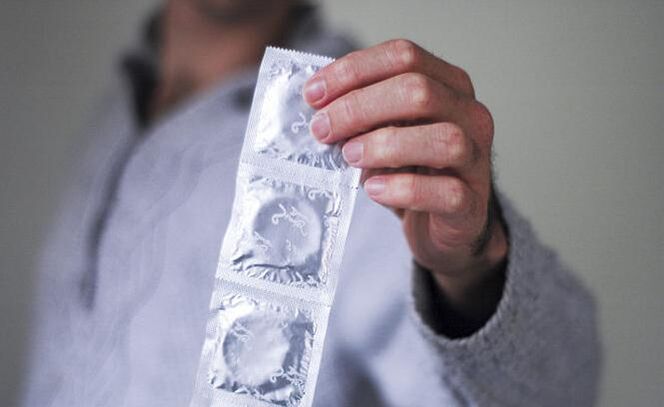
Prostatitis is the most common urological disease today. And the reason for this is that the factors that lead to the development of prostatitis are very common in the everyday life of men. In general, the treatment of prostatitis is a rather complicated process, consisting of a complex of procedures, drugs, therapies and massages. To achieve remission of the disease and help avoid the pain symptoms of prostatitis, antibiotics, anti-inflammatories, pain relievers and drugs that strengthen the immune system help.
Methods of treatment of prostatitis with drugs
Several methods are usually recommended for the treatment of the prostate gland, namely:
- candlesApplied rectally, it affects metabolism in the prostate. For 30-40 minutes after application, it is recommended to remain in a supine position. The course is from five to ten days. Contraindications: sensitivity to the components of the ovules. Possible side effects: allergies (itching and burning).
- Injections against prostatitis.The drugs also stimulate the immune system and strengthen the vascular system.
- instillations.This type of therapy allows the medicine to be delivered directly to its destination: the medicine is administered through the external opening of the urethra. It is recommended to inject about 5 ml of the drug mixture, while the bladder must be emptied before the procedure.
- Microclysters.This method is often called "folk" due to the use of infusions and decoctions of medicinal plants commonly used in traditional medicine. It is based on simultaneous temperature and medicinal effects, which enhances its effectiveness. As a rule, it is recommended to perform microclysters before bedtime, so that after the procedure the prostate gland does not succumb to stress and possible hypothermia. As medicines, infusions of sage water, calendula, chamomile, motherwort are used. The solution is injected into the rectum (in an amount not exceeding 100 ml), where it must be absorbed. Microclysters are usually used in parallel with treatment with antibacterial drugs.
- Tablets for the treatment of the prostate.In most cases, for the treatment of such an ailment as prostatitis, broad-spectrum antibacterial agents are used, especially if the causative agent of the disease has not been identified. Such drugs can be divided into three groups: drugs from the tetracycline group, drugs from the penicillin series, drugs from the fluoroquinolone group.
Antibiotics for the treatment of prostatitis.
Let's dwell on the last group of drugs for the treatment of prostatitis in more detail.
Fluoroquinolones are modern antibacterial agents of relatively recent development. Because of this, they have quite a large number of advantages over other broad-spectrum antibiotics. Drugs of this group practically do not cause immunodeficiency in patients. Representatives of fluoroquinolones have an even wider range of effects on microorganisms.
Tetracycline preparations are used as antibacterial treatment for prostatitis somewhat less frequently than fluoroquinolones. Specialists usually prescribe antibiotics for chronic and infectious prostatitis. With a non-infectious form, the method of treatment remains controversial and is not fully explored.
In the treatment of prostatitis, antibacterial drugs are not prescribed immediately, but only after the doctor examines the patient for infection. During this period, symptomatic therapy is usually recommended, which is aimed at combating inflammatory processes and pain symptoms.
Antibiotic treatment lasts about four weeks or more with mandatory clinical monitoring of the patient's condition. In the absence of a positive result of treatment, antibacterial drugs are refused, but not earlier than two weeks after the start of the course.
After successful antibiotic therapy, a sufficiently long period of good health can be achieved in the patient. However, as a general rule, painful sensations return over time, therefore treatment with antibacterial drugs alone should not be considered sufficient. Good results are obtained by a therapy program aimed at increasing the body's local and general resistance to pathogenic factors. In this case, you can count on success, or at least a long remission.
Prostatitis: what to ask at the pharmacy?
Next, I would like to draw attention to drugs for the treatment of the prostate gland, which today have gained popularity on the market and are the most purchased drugs for prostatitis.
Herbal preparation with sabal palm fruit extract. The drug is used to treat benign prostatic hyperplasia of the first and second stages, as well as chronic prostatitis. How to use: Take one capsule every day after meals, drink plenty of fluids, do not chew. Contraindications: sensitivity to components. Side effects: gastralgia (occurs very rarely). If we evaluate the experience and feedback of patients, then the tool today is the most purchased.
Medication that is produced in the form of injections and suppositories. It has an organotropic effect on the prostate. The drug normalizes the processes of spermatogenesis and microcirculation, increases the tone of the bladder muscles. Indications for use: chronic prostatitis, prostate adenoma, etc. Side effects in the form of allergic reactions are possible. The drug is not the most expensive in price, it treats and not only relieves symptoms, it is not purely chemically synthesized, overdose has not been studied.
The most important thing that every man should know is that he should immediately contact a urologist when the first signs of prostatitis appear. The specialist will determine the necessary therapy, select the best drug in your case and prescribe an effective course of treatment.



























